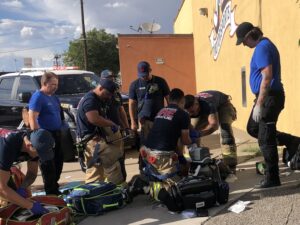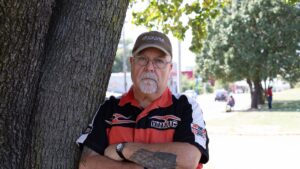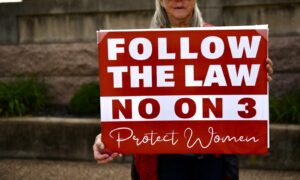10:12
Brief
News Briefs
Missouri governor calls special session as CARES Act spending deadline looms
With Missouri in its 13th consecutive week of reporting an average of more than 1,000 COVID-19 cases per day, and facing a Dec. 30 deadline for using federal relief funds, Gov. Mike Parson on Wednesday called a special session to begin just after the Nov. 3 election.
On Thursday morning, the Department of Health and Senior Services reported 1,854 additional COVID-19 infections and 16 additional deaths. The 7-day average of additional cases as reported by the department stood at 1,738, one of the highest average rates of the pandemic.
Only four of the state’s 117 local health jurisdictions did not record a new case on Thursday. There has been at least one death from COVID-19 in 106 of the 117 jurisdictions.
In his announcement of a special session, Parson said he wanted lawmakers to allocate CARES Act funding to support school nutrition, job training, grants for homeless prevention, combating domestic violence and paying child support.
“It is a balancing act between COVID-19, the economy, violent crime and the many other challenges facing our state right now,” Parson said. “COVID-19 will not disappear so we must keep pushing forward on all fronts while we protect ourselves and others.”
Missouri has until Dec. 30 to spend the remaining money from the CARES Act passed in March.

Parson did not state how much money was available from the $2.1 billion received by the state, but House Budget Chairman Cody Smith, R-Carthage, has said he was hoping that federal rules on $800 million in unspent money would be loosened to fill funds hit by the COVID-19-related economic disruptions.
The proclamation issued for a special session also did not specify amounts for the particular areas cited by Parson.
Parson, a Republican, is seeking re-election Nov. 3 against State Auditor Nicole Galloway. In a statement issued in response to Parson’s call for a special session, Galloway said the money should have been appropriated months ago.
“This is way too little, way too late from a governor who has failed at every step to contain the virus and put Missouri’s economy back on track,” Galloway said. “The governor should have taken action on day one to get these funds to the Missourians who need them most.”
Galloway called the action to bring lawmakers to Jefferson City “the latest example of Parson’s political cynicism and administrative incompetence.”
During the news conference, Parson accused media outlets of focusing on daily COVID-19 reports and cherry-picking from a variety of sources, looking for “the worst-case scenario, not using what the true facts are by using from these sources.”
The Independent bases its daily reports on the course of the pandemic in Missouri on the data provided by the Department of Health and Senior Services through its dashboard. For data to create state-to-state comparisons, The Independent uses data from the COVID Tracking Project of The Atlantic, which compiles the official reports from each state, the District of Columbia and five U.S. territories.
The daily data presented by the state health agency doesn’t necessarily reflect the new cases discovered the previous day in testing, Parson said.
“The day-to-day numbers can shift drastically for a variety of reasons,” he said. “For example, on Sundays, DHSS receives a data dump of test records from a lab or provider that has accumulated over a period of time.”
The best figure, he said, is the 7-day average.
The 7-day average of cases reported on the state dashboard Thursday was 1,522, reflecting cases found through Monday and adjusted to exclude cases tested earlier than the period covered by the average.
The Independent reports the 7-day average of cases reported, which is higher than the state’s adjusted data.
Missouri’s position relative to other states has deteriorated significantly since Aug. 1, when it was 38th for overall per-capita infections. Since that time, it has risen to 22nd overall and, for the period since Aug. 1, has the 11th highest infection rate.
Defending that result, Parson said it was due to Missouri’s position in the middle of the country and in the Midwest.
“Missouri is right in the middle of the Midwest, where you know very well that’s the hottest part in the nation right now,” Parson said.
Of 13 states considered part of the Midwest, Missouri has the fifth highest infection rate since Aug. 1, behind North Dakota, South Dakota, Wisconsin and Iowa.
Parson also cautioned against viewing daily death reports as indicating deaths the previous day. Death reports can be delayed and the state health agency has begun comparing death certificates to COVID-19 test data, resulting in adjustments that have added more than 100 deaths to the state’s tally each of the past two weekends.
For per capita deaths overall, Missouri ranks 29th nationally, with 43 deaths per 100,000 residents. The highest death rate for the pandemic is in New Jersey, with 182 per 100,000 residents.
Our stories may be republished online or in print under Creative Commons license CC BY-NC-ND 4.0. We ask that you edit only for style or to shorten, provide proper attribution and link to our website. AP and Getty images may not be republished. Please see our republishing guidelines for use of any other photos and graphics.





